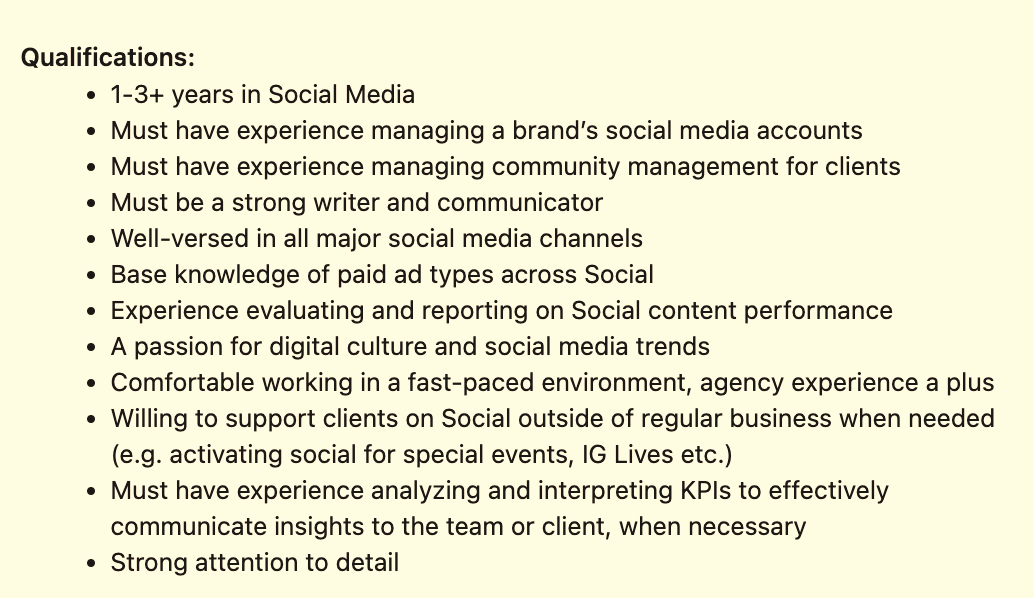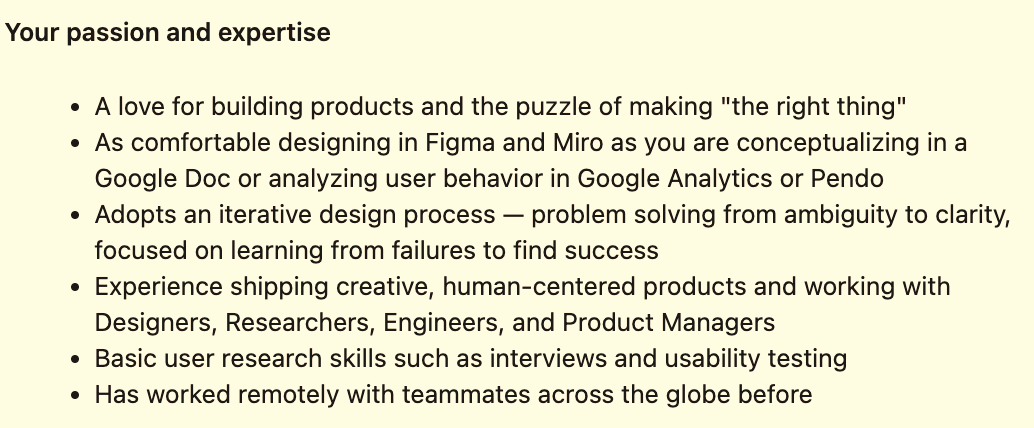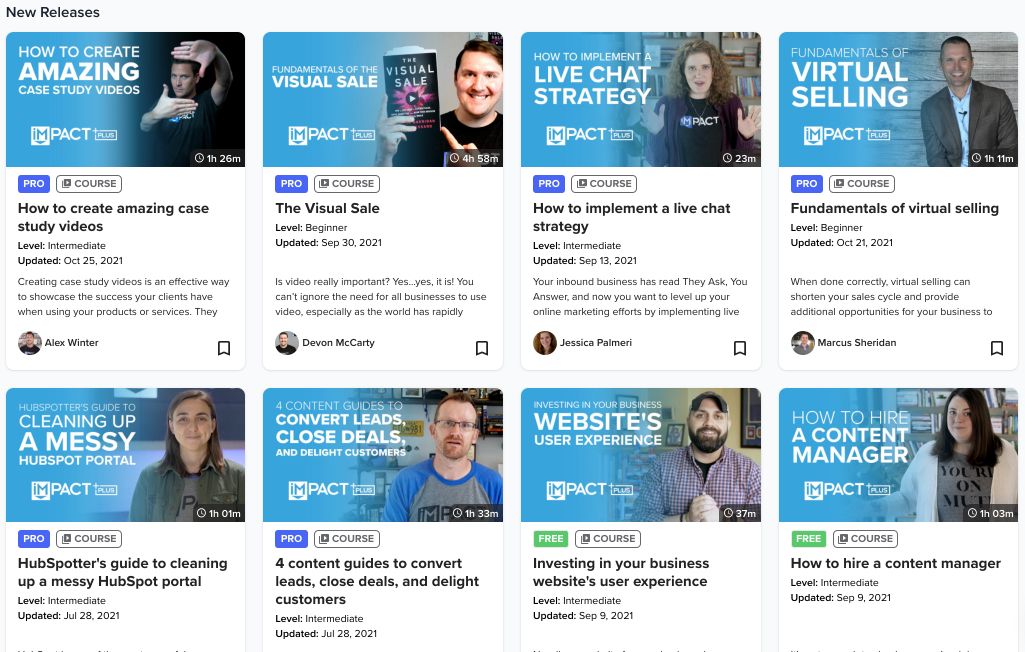Subscribe now and get the latest podcast releases delivered straight to your inbox.
Top problems with marketing training
- You can't guarantee a return on investment
- You're getting theory, not practice
- You're learning something that's already outdated
- You're learning something that's too narrow (or too broad)
The marketing industry in the U.S. was worth a quarter of a trillion dollars in 2021 — and that number’s gone up every year during the past decade.
Jobs in the marketing industry are high paying, with a six-figure average salary. They’re also plentiful. According to BLS, you can expect more than 35,000 openings to be listed next year.
It’s no wonder, then, that people flock to marketing training programs, from free online courses to full university degrees.
While there are many options that offer flexibility to meet your needs, there are certainly drawbacks that come with each one that you should be aware of so you can pick the right training program for your needs.
Below, I’ll:
- Quickly explain various types of marketing training
- Cover the major problems
- Explore potential solutions
Types of marketing training
First up, we need to define what we’re talking about. Marketing training can take many forms, and the price range varies accordingly. For the sake of this article, we’ll be talking about three main types of marketing training:
- College degrees: These are traditional programs run by universities. You could get an associate, bachelor’s, or master’s degree, with a major or concentration in marketing. These are the most expensive and time consuming options of the bunch.
- College certification programs: These also come from colleges, but are less expensive and time consuming. They might take as little as six weeks or as long as 12 months, but you still walk away with a certificate from a credible and recognized institution.
- Online courses and certificates: Ranging from free to a few hundred dollars, online marketing training is the most economical and accessible solution. You can consume content on demand — and from anywhere.
With this in mind, let’s look at some common problems with each of these training options.
Top problems with marketing training
While marketing training has a host of possible benefits, it also has potential drawbacks, shortcomings, and problems to watch out for.
1. You can’t guarantee a return on investment (ROI)
If you’re going through any kind of training, you’re making an investment.
In some cases, such as with a college degree, you’re talking tens of thousands of dollars. But even free courses or certifications require the investment of time — and you want to be sure that what you’re doing is actually worth it.
For any form of marketing training, it makes sense to ask: Will this certification help my career? Will it make me more effective? Will it make me stand out in a crowded applicant pool or get that promotion?
How to solve it
There’s no guaranteed way to guarantee ROI. All investment comes with some risks. But there are some things you can do to gauge the potential value of marketing education.
1. Scrutinize job postings. The surest way to ensure return on investment is to look at job postings to see what’s required. Look at 10 postings for similar roles. What core competencies are expected for new applicants? What skills are considered table stakes?
What core competencies are expected for new applicants? What skills are considered table stakes?
If you’re looking for a job in graphic design, for example, what are the requirements? How about for a marketing manager or social media specialist?
Let’s say knowledge of InDesign is a must for a job you want. Then learning that would be a wise investment.
Is a bachelor’s degree in marketing required? If so, then that would be something to pursue.
Of course, investing tens of thousands of dollars in a degree will not guarantee you get a job — or even an interview. But when you know the job requirements, you have a good idea of which investments are wisest
2. Talk to your manager. If you’re looking to level up your game and are deciding between a few different options, run them by your manager. What core skills would most help the team and allow you to develop in your career?
3. Talk to someone who has the job you’re looking to get. If you’re aspiring to be a marketing director, CMO, or social media manager, talk to someone who already has that job and see what training they’d recommend.
2. You’re getting theory, not practice
A 24-year old colleague of mine graduated two years ago with a degree in marketing. However, his major included very little about digital marketing and nothing at all about inbound marketing. So, when he joined an inbound marketing agency, he was barely above square one.
He valued everything he learned in college — and it ultimately did help him get his first job — but he acknowledges that there was more focus on theory than on practice.
While Product - Market - Fit and the Four P’s of Marketing are important, so too is a working knowledge of Google Analytics and Instagram marketing.
How to solve it
Theory tends to dwell in classrooms and lecture halls. If you’re a student getting a degree in marketing, be sure to:
- Take classes that include practical applications
- Complete an internship before you graduate
- Talk to friends who have graduated and are now in the workforce. What did they wish they learned more of during college? Use their experience to better prepare yourself.
This way, you can prevent the experience of graduating with a degree in a field you still don’t know.
If you’re taking online courses, look for ones that include real-world examples so you can see theory put into practice. If the courses you’re looking at feel too theoretical, you might want to look somewhere else.
3. You’re learning something that’s already outdated
Look, marketing moves pretty fast. What you learn today might not apply in a year or two — and that’s even if what you’re learning is cutting edge.
Recently, a HubSpot trainer told me that if she were hiring a HubSpot administrator, she wouldn’t see any value in experience that was more than four years old. The platform and the nature of inbound marketing have changed so much that outdated experience is more of a liability than an asset.
So, as you consider investing in marketing training, you want to be sure you’re getting information you can use today, tomorrow, and for the foreseeable future.
How to solve it
How can you know that the training you’re getting isn’t full of obsolete information?
Do your research. If you’re in a college degree program, use the same approach described above. Do an internship and talk to people in the industry to see what’s happening.

If you’re completing a certification online, find out when the material was published. If it’s from a few years ago, dig a little deeper. There’s a good chance the content is still valuable and applicable, but it could be outdated, and you should look elsewhere.
All this being said, even as marketing tactics and platforms change, the core principles are steadfast. So, information about SEO might become outdated, but information about building trust will stay relevant for many years.
4. You’re learning something that’s too narrow (or too broad)
What if you spend time learning one platform only to find out that it’s not the one you need to know. Or, what if your training focuses mostly on broad topics that feel like a 101-level foundation.
Are these things worth learning?
How to solve it
This isn’t as big of a problem as it seems. Broad information is always good background knowledge to have, and it will often come in handy if colleagues are talking about something that’s outside your specialty. You might not know a lot about YouTube branding, but if you know general branding principles, you can keep up.

At the same time, specific knowledge is often helpful as well, even if it’s not exactly what you need.
If you get a new job and your manager asks you to build an email sequence in Mailchimp, it’s not a bad look to say, “Well, I’ve never used Mailchimp, but I’ve learned the process in Constant Contact. Are they similar?” It shows adaptability and a willingness to learn.
The right marketing training can change your career
The first step to getting a job in marketing is getting the knowledge you need. Check out different training options that best suit your goals, your budget, and your timeline. For some, that might mean a degree or certificate. For others, the best option may be just a few online courses you can knock out in a weekend.
Nearly every college offers some form of marketing training, and online platforms like Coursera and Udemy have deep catalogs of marketing-related course material.
As you search, keep in mind the problems that could sink your investment. Then, build a plan, tahe a first step, and start moving forward.
If you’re particularly interested in inbound marketing and They Ask, You Answer, check out IMPACT+, our online learning community with dozens of courses, hundreds of recorded keynotes and presentations, and discussion groups for every marketing subset.
You can get started with this free course: Video Sales and Marketing Strategy


Order Your Copy of Marcus Sheridan's New Book — Endless Customers!

